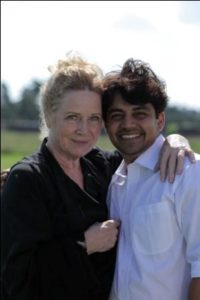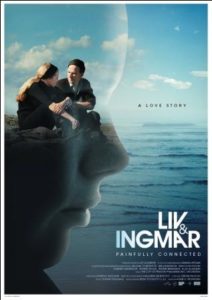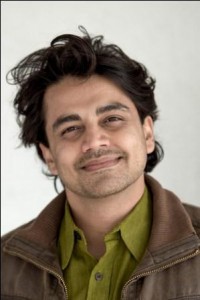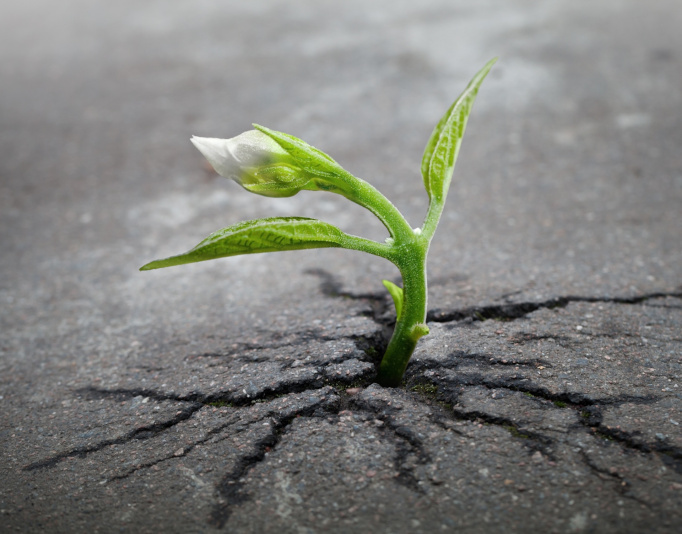At ten years old, he had a dream, a passion that would go forgotten and buried inside. After graduating with a Gold Medal in Architecture from Pune University in India, Dheeraj was exposed to the Indian film industry. It sparked something that had been kept inside for many years. He decided to listen to his inner voice and made his way to London to pursue his passion and have faith in his dream of making his own films.
In this interview, Dheeraj Akolkar talks about the struggles of “being a nobody,” always getting rejected and the hurt of humiliation. His story is that of determination and perseverance. He reveals the strength that kept him going towards the success of his latest film “Liv and Ingmar.”
Meet Dheeraj:
Antonia: Congratulations on the release of your film “Liv and Ingmar”. We will get to it in a moment, but, first can you tell us about your journey that led you to making this film.
Dheeraj: I studied architecture in India. During my internship, I went to Mumbai to work in the film industry. It is a very exciting place. Very vibrant and warm with wonderful people and wonderful artists. I had great opportunities working on films. I left because I wanted to work on my own cinema. I decided to go to London and study cinema. After my course, I started my own company and developing projects. “Liv and Ingmar” was one of my projects that started in 2007.
Antonia: Dheeraj, you went from architecture to making films. At which moment would you say you found your true passion?
Dheeraj: It happened very early at the age of ten. It was something I had completely forgotten. I did not remember that I used to talk about making films when I was that young. One day, after many years, one of my closest friends from the fifth grade, found my brother through social networking and wrote to him, “I remember Dheeraj used to talk about wanting to make films in the fifth grade and he is making them now.” It’s funny; it is the people who are close to you that remember things.
My parents were huge cinema lovers. So, I grew up watching really good cinema. The first one that made a big impression on me was Doctor Zhivago. It was the beginning for me because that sensation was immense. It felt like, this is what cinema should be. It took some time, but finally I got there. You need to know what you want to say before making a film. There is no point in making a film if you don’t have anything to say.
Antonia: What inspired you to make this film, “Liv and Ingmar?”
Dheeraj: Liv has written two books, “Changing” and “Choices”. I have read both, but, “Changing” is one of my favorite books. She wrote it about six years after her relationship with Ingmar Bergman ended. It is an extraordinary book. Liv writes with a lot of affection and honesty of her relationship with Ingmar. There is a lot written in the book, but, there is a lot unwritten, a lot of “in between the lines.” Through this book, I met this wonderful, wonderful woman and through her, I met this extraordinary man, who had changed her life. You can sense a lot of love and what is unspoken. So, the book had a lot to do with it, but, the actual starting point was in 2007 when he passed away. It was a sad moment; I always hoped to have met this man who was a legendary filmmaker. I searched for something from Liv after his death, hoping that she had said something. There was nothing and I realized that there would be nothing. That’s when this film came to me and I wrote it down as a piece of poetry.
Antonia: This was obviously a huge project and you probably faced many challenges along the way. Can you tell us, what challenges you faced and what kept you motivated to continue?
Dheeraj: The biggest challenge is “being a nobody.” Because let’s face it, if Woody Allen were to make this film, who is very close to Liv Ullmann and was very close to Ingmar Bergman, he would have made it very fast. But, we have to respect the fact that Woody Allen is Woody Allen, he has earned this respect. When I started making films, who was I, honestly? This is the first part of the struggles. People don’t respond to your emails, people are not civil, they think you are a “wanna be.” It is a challenge that everyone faces, no matter the field. You keep going because you are doing what you want to do. Making films was not some “fad” to become famous and rich. It is something I really, genuinely love to do. So, there were days in London that were excruciating, very difficult. I remember working part time at my college and telling people, “I am a filmmaker.” They would respond, “you are a failure,” straight in my face.”
People will laugh in your face and make jokes at your expense. Yes, it hurts. It is not at all easy, humiliation is hurtful.
You wonder why they are saying this. I guess people take enjoyment in seeing someone fail because it makes them feel successful. So, there were times when I would go back home and… Yeah, they were very difficult times. But, you know where the strength to keep going came from? It came from the film. Every morning, waking up and writing or printing the script and keeping it on the table. Looking at it, there was an energy coming from that script.
When you know what your intentions are, it gives you power to go on and not give up.
For me, giving up is not an option. I mean, if you had to give up, why did you start in the first place? What is the point in starting a journey thinking, “if this doesn’t work out, I will give up.” You are setting yourself up for failure before getting started. If you really do something you love, it could be anything, any work is dignified as long as you are not hurting someone intentionally, you must keep going, giving up is not an option.
I had many rejections in making this film. It was hard to find a producer or someone who would trust me. It is quite logically, I don’t blame people for those rejections. I mean, who am I?
So, it requires time and it is ok to give that time. This time is your gift. It is given to you to work on yourself.
It is a chance for you to recognize your flaws and correct them. An opportunity to become stronger and not become bitter from rejection. Rejection is not personal. You must always have faith that it is going to work. Even if nobody has that faith, you MUST have that faith and tell yourself, “This is going to work!” And, it will work. I remember being called to talk to a group of young people in London and telling them,
“You have to keep knocking on those doors. Sometimes your hands hurt and turn bloody and you will have wounds. But, you have to keep knocking because one day, one of those doors will open.”
Antonia: Absolutely! It is probably how it happened for you, knocking on producers’ doors. How did you finally get that YES?
Dheeraj: I have to thank my dear friend Ragnhild Lund Do, Norwegian actress and director, whom I met while filming a play in Scotland. She said, “Let me take this material to Norway and arrange a meeting for you.” She became my bridge and later worked on the film. So, when the producer said yes, I was very happy. Of course, Liv had to agree to do it, because if she didn’t agree, we wouldn’t have a film. When the producers got in touch with her, Liv said, “No, I am not going to do it.” However, Liv told them that she would meet with me because it was polite to say hello. At this point, I did not know that she had refused, the producers didn’t tell me. So, I was excited and looking forward to that great moment where I would meet Liv. On December 15, 2010 when we met for the first time, Liv asked me why I wanted to make this film. I started telling her and within five minutes, her eyes just filled up and she held my hand for the rest of the hour we spend together, and said, “Yes, I will do it.” She is the second person I have to thank. Without her, there was no film.

So, I learned that you have to fight for every moment. Life is not given to you; dreams are not given to you easy.
There are fights along the way, there are challenges along the way and there are tests. Somebody is testing you. Are you worth it? How badly do you want to do this? So, you have to go on fighting because what is life but a dream? What is life but a fight?
If everything comes easy and you don’t fight, what is the meaning of life? If you didn’t change something that was meant to change?
Antonia: Absolutely. Dheeraj what is your most valuable lesson that you have learned or made you grow through this experience?
Dheeraj: My faith has been reinforced and I learned that I must always follow my heart. It has something to do with intentions. I have a very dear friend and although she doesn’t say much, she has always made me reflect with the most simplest of questions. Trying to find the answer in my head, makes me realize something very important. I remember while I was working on another film, she asked me, “Why do you want to do this? What is your intention? Because if you really want to do this film for the right intention, it will happen.”
I agree with this. What intentions are you starting with? If I want to make a film because of the film and nothing else attached to it, it will happen! When I spoke to that group in London and told them that one day a door will open, I was speaking from a point of truth in my heart. I absolutely believe that if you keep trying, it will happen.
Life is full of ups and downs. Having had strength and faith reinforced in my heart and knowing what is “possible”, is my most valuable lesson. What a magical journey to be a facilitator in making this film and have incredible artists to work with. Between 150 and 200 people to make this film, MAGIC!
The second lesson I have learned is to be grateful. I am so grateful!
Antonia: Sometimes, we forget to be grateful for having achieved what we have and be where we are. If we take the time to be grateful, we will recognize everything we accomplished to get where we are.
Dheeraj: Yes, it shifts something in you when you recognize genuine gratitude. It is very easy to be angry and bitter. We don’t say “thank you” to the people in our lives, often. Just say,
“Thank you, you came and touched my life. Thank you, you gave me an opportunity to touch yours. You gave me a possibility to love you and I received love in return.” We should say “thank you”, it is not enough to feel it.
Antonia: Dheeraj, you have shared some powerful messages. What advice would give someone who has a passion but, is probably afraid to take that first step in pursuing it?
Dheeraj: I would say, you have to listen to your own heart.
We all have, every single one of us has a guiding voice inside of us.
But, sometimes, we don’t listen because there are fears and compulsions in life. We have to survive, we have to provide for somebody, we have to be someone for somebody. Survival is very hard. I come from India. I have seen how hard it is when you have to put food on the table for your children. Do you have the luxury to dream? Yes, you do!
All of us have the possibility to dream. What is life but a dream? You must dream.
Maybe tomorrow, the day after tomorrow, in a year from now. But, if you keep it alive in your heart somewhere, one day a door will open. Until that moment, you shouldn’t have forgotten that faith. You shouldn’t have become so negative or so bitter. You shouldn’t have lost the fight with life. So, you have to listen and you have to have faith. This is not an advice; I am sharing this from a point in my heart. I am saying,
If you dream, you don’t negate the power of your dreams. Dreams are very, very strong.
I remember reading Mother Teresa, it is a little girl saying, “I have a dream.” What if her dream hadn’t worked out, what would have happened? It’s important to know that we all have the possibility to dream and have the faith in our heart that it will work out. I’ll say once again, don’t hurt anybody intentionally but,
Don’t ever be scared to dream. It changes life, what is life but a dream.

Watch the interview of Dheeraj here:
Watch the interview with film director Dheeraj Akolkar on Youtube.






